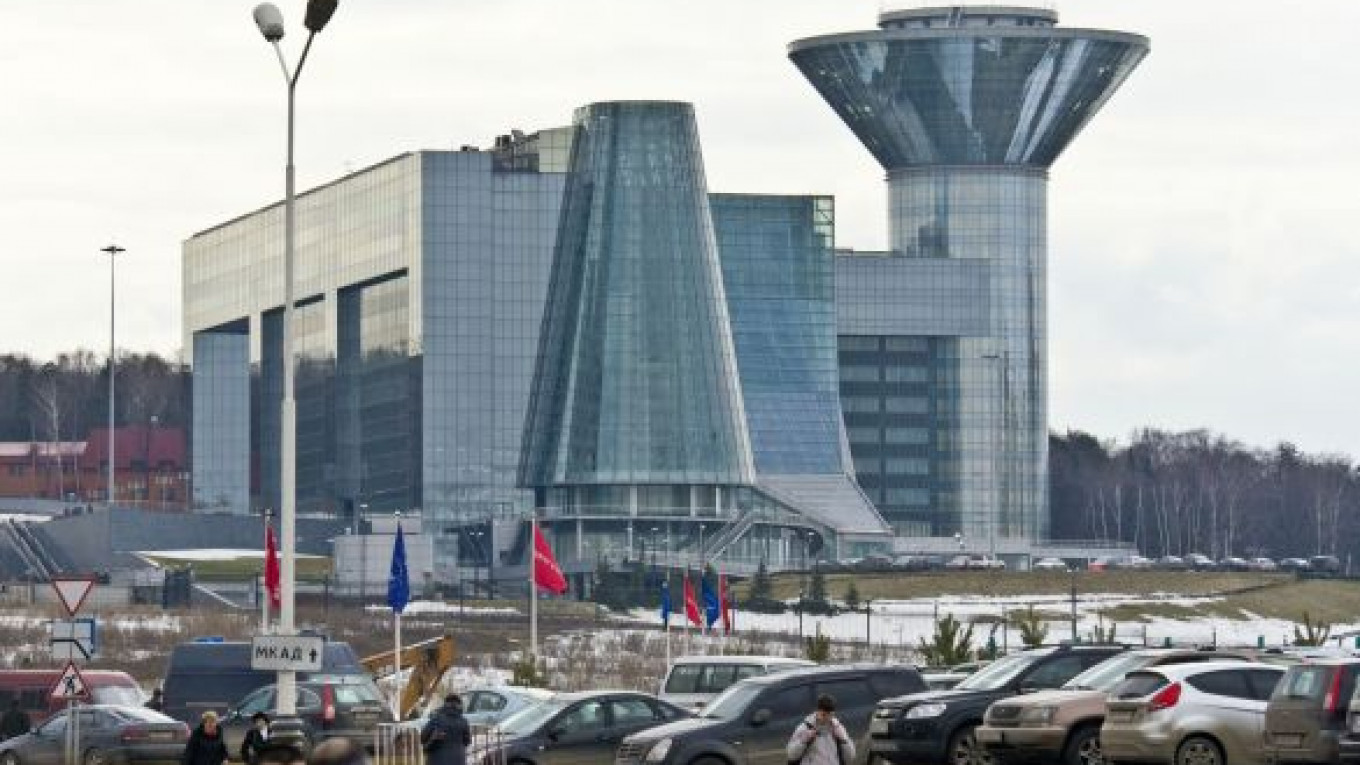If you own a dacha in the picturesque countryside near Moscow you might find yourself surrounded by mountains of glass and concrete in the future, as regional authorities consider building business districts outside the capital.
Shiny skyscrapers could appear in the Moscow region in the coming years to house corporate offices, German Yelyanyushkin, deputy chairman of the Moscow regional government, said last week.
"The Moscow region should probably have its own city districts," he said, referring to the business and financial center in London. "Perhaps it makes sense to consider [constructing] skyscrapers in the locations where business activities will concentrate, not only high-rise buildings," he told journalists, Interfax reported.
The Moscow region has "huge potential" for bringing the officials' idea to life, but one limiting factor is the time period for those projects to provide returns, said Polina Zhilkina, director of strategic consulting at CB Richard Ellis Russia.
"The more projects that are implemented, the longer it will take the market to absorb them," she said.
For a business district outside Moscow to be successful, it should be easily accessible by personal and public transportation, with infrastructure including high-speed trains and metro lines, Zhilkina said.
Construction work to extend the metro outside the Moscow Ring Road is already underway, with the first project, Rumyantsevo station on Kievskoye Shosse southwest of Moscow, to be completed next year.
However, creating business parks outside the city is not supported by the chairman of the Moscow Architectural Community, Boris Uborevich-Borovsky, who thinks it is an "absolutely incorrect idea."
Such projects are feasible only in big cities with intense business activity, like Moscow or Yekaterinburg, where developing business and financial centers is an effective way to boost that activity, he said.
He praised the Moscow-City skyscraper district, saying it brings the capital a step closer to becoming a global financial center.
But if carried out in the Moscow region, projects like that are unlikely to be profitable, since investors will probably struggle to find high-profile tenants, Uborevich-Borovsky said, adding that it's hard to imagine a big company, which would prefer an office in the region to a central urban location.
Furthermore, large-scale construction would damage the natural environment outside the city and ruin the conditions around historical estates, he said, adding that the heights of business centers in the region should not exceed 15 stories.
Yelyanyushkin said regional authorities would analyze the possible number of floors of new construction projects, although there is no understanding yet on how high the buildings could be.
He added that no construction would be carried out until the plan is discussed with residents and architects involved in international urban construction projects.
Meanwhile, the future of residential construction outside the city remains gloomy, with development of new projects being suspended as a result of an oversupply of high-rise apartment complexes and a lack of infrastructure.
The decision to freeze construction was made by acting Moscow region Governor Andrei Vorobyov. The issuance of construction permits has been suspended until regional authorities complete a check of whether existing projects are accompanied by the necessary social and transportation infrastructure, said Yelyanyushkin, the deputy chairman.
It will take the regional Urban Construction Council chaired by Vorobyov about four months to complete the check, Yelyanyushkin told Vedomosti.
A source close to the regional government said most of the investment contracts will be revised, Vedomosti reported.
But Yelyanyushkin hurried to dispel developers' fears, saying that breaking contracts was not the goal.
"We are not halting development where construction works are already underway, we just don't issue new permits," he said, Interfax reported.
Construction permits have been provided to build a total of 17 million square meters of housing scheduled to be completed by 2015, he said.
Contact the author at irina.filatova@imedia.ru
A Message from The Moscow Times:
Dear readers,
We are facing unprecedented challenges. Russia's Prosecutor General's Office has designated The Moscow Times as an "undesirable" organization, criminalizing our work and putting our staff at risk of prosecution. This follows our earlier unjust labeling as a "foreign agent."
These actions are direct attempts to silence independent journalism in Russia. The authorities claim our work "discredits the decisions of the Russian leadership." We see things differently: we strive to provide accurate, unbiased reporting on Russia.
We, the journalists of The Moscow Times, refuse to be silenced. But to continue our work, we need your help.
Your support, no matter how small, makes a world of difference. If you can, please support us monthly starting from just $2. It's quick to set up, and every contribution makes a significant impact.
By supporting The Moscow Times, you're defending open, independent journalism in the face of repression. Thank you for standing with us.
Remind me later.






